How to Cure Insomnia with Natural and Simple Ways
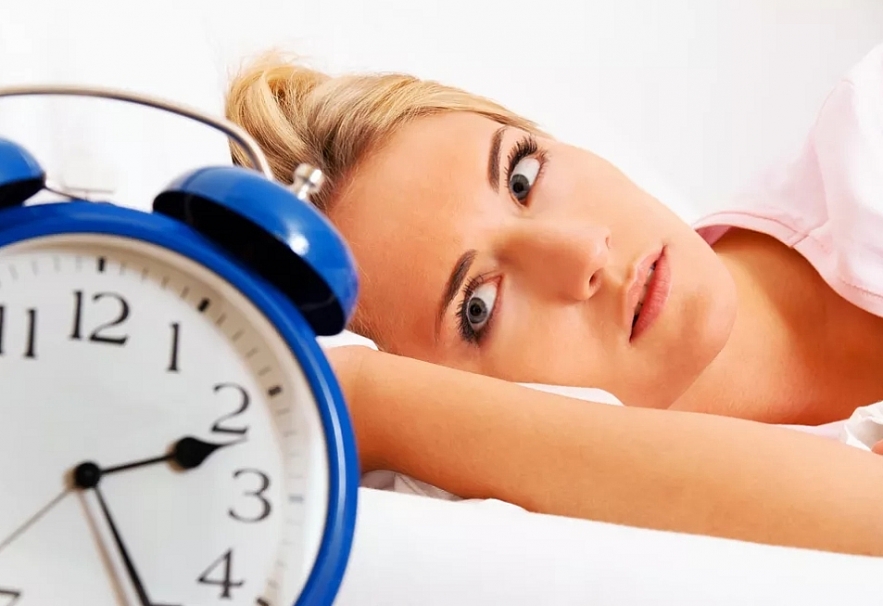 |
| Simple and Effective Ways to Treat Insomnia Fast |
| Table of Content |
What is Insomnia
Insomnia is a sleeping disorder where the person finds it difficult to sleep. Insomnia can be of two types: short-term or transient insomnia and chronic insomnia. Short-term insomnia is usually when the person goes through a stressful or traumatic life event such as getting fired from your job, losing a loved one or having an accident.
Chronic insomnia is seen in people who have difficulty falling asleep or maintaining sleep for at least one month.
More than one-quarter of people in the U.S. report occasionally not getting enough sleep. However, the clinical definition of insomnia includes feeling impaired during the daytime or stressed by the condition.
Experts say that in true insomnia, the symptoms persist for at least a month, and do not occur along with another sleep disorder, mental disorder, medical condition or substance use. By this definition, about 6 percent of people have insomnia, according to the National Institutes of Health.
Strange Facts About Insomnia
♦ Insomnia can be hereditary: According to a study, teens with parents who have insomnia have an increased risk for using prescribed sleeping pills, and having mental problems. Researchers looked at nearly 800 teens and found that, compared with teens whose parents had no insomnia problems, those with insomnia parents were more than twice more likely to report insomnia, daytime sleepiness, and pill use
♦ People can die from insomnia: Fatal familial insomnia is a rare genetic disease that prevents a person from falling asleep, eventually leading to death. Experts have identified it as a prion disease, caused by an abnormal protein developing from a genetic mutation, that affects brain function, causing memory loss, no control over muscle movements and hallucinations.
♦ Chronic insomnia and alcohol abuse: People who drink alcohol to help them get to sleep could wind up developing a drinking problem, research suggests. People use [alcohol] to self treat and need more alcohol to help you sleep. According to a study, researchers looked at 172 men and women being treated for alcohol dependence. They found that participants with insomnia were about twice as likely to report using alcohol to sleep, compared with those without insomnia. Attempting to self-medicate insomnia with alcohol, however, will ultimately worsen insomnia, the study authors said.
♦ Sleeping pills are failure to cure insomnia: One in four Americans take some type of medication every year to help them sleep, according to the National Sleep Foundation. But these pills may not be leading to better sleep. There's no evidence that proves sleeping pills can cure insomnia, said Jack Edinger, a sleep specialist at National Jewish Health hospital in Colorado.
♦ Pets and bugs can also suffer from insomnia: Other animals, such as bugs, can't exactly complain of having insomnia, but some studies suggest animals suffer from sleep disorders just like humans.
Related: What To Do If You've Got Sleeping Problems Due To Noise?
What are the effects of afternoon naps on the body?
Losing sleep has negative effects on health.
Similar to night sleep, napping is one of the body's natural physiological needs. Experts say that noon is the time when the body temperature will gradually decrease and the ability to react to external stimuli is also affected, so having a nap is essential to rebalance. .
Napping has many health benefits, not only helping to dispel the feeling of fatigue and stress after a working morning, but also very good for the brain, helping to regain the spirit and energy to be ready. for the next working time in the afternoon.
An afternoon nap only lasts about 15-30 minutes but brings a lot of benefits both physically and mentally. If you regularly lose nap, it will affect the activities of the body and brain. Over time, the body is tired, the mind is less alert and the working process is not very efficient.
Why do patients lose sleep in the afternoon?
The cause of insomnia usually comes from psychological factors, especially for office workers who often face pressure from work. The main causes of insomnia include:
Insomnia due to activities: If the patient uses stimulants that cause excitement or regularly smokes, drinks alcohol, tea, eats too much before sleeping, sleeps in the opposite time zone, experiences stress, stress... It will affect the microvascular system's activity, hinder the circulation of oxygen and blood to the brain. These are all causes of prolonged sleep deprivation.
– Physical causes: Usually occurs in cases of diseases related to sinusitis, allergic rhinitis, rheumatic pain, stomach ulcers, depression… People who often abuse headache drugs, drugs Diuretics, anti-inflammatory steroids can also have a side effect that is insomnia.
Read More: Meet A Vietnamese Mutant Who Hasn't Slept for 50 Years - Top 10 "Superman" in the World
How to cure insomnia simply and effectively
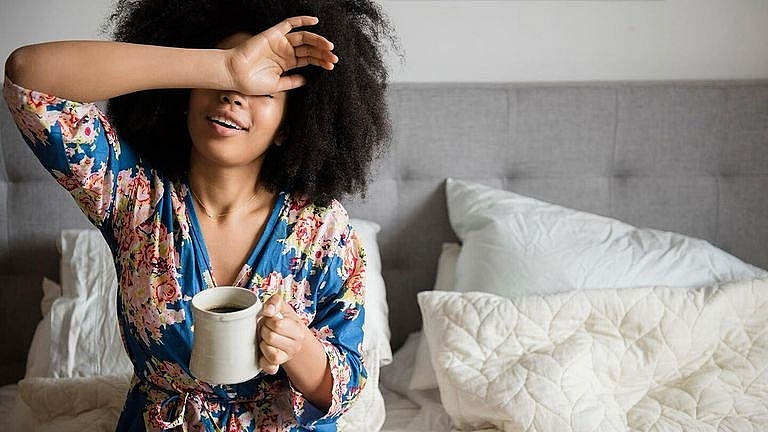 |
| Natural Insomnia Treatments |
Proper and correct napping will help patients improve their health, and at the same time enhance the functioning of the brain as well as other internal organs in the body. Depending on the needs of each person, the nap time can be adjusted to the most suitable. However, experts also recommend that the nap time should be as short as 15 minutes and last no more than 1 hour.
Here are some simple and effective methods to improve insomnia for patients:
Tune In to Soothing Music
If you're having trouble falling asleep, listening to calming, soft music as you doze off could be a solution. A researchfound that listening to music before going to bed may help improve sleep quality. Just make sure you're picking something soothing, and that you set it to turn off after a while, preferably when you're already deep in dreamland.
Try Progressive Muscle Relaxation
Tension in your body can make it difficult to sleep. You may not even realize when you're stressed about something, but your body can still feel the physical effects of stress, leaving muscles tensed up as a result.
To practice progressive muscle relaxation for stress-related insomnia:
• Find a quiet place to sit or lie down.
• Tense the muscles in your face, hold for a count of eight, then let them go.
• Keep tensing and releasing your face muscles until you feel relaxed.
• Next, move on to the muscles in your neck, holding them tight for a count of eight, then letting them go.
• Keep tensing and releasing your neck muscles until you feel relaxed.
• Continue this tense-relax pattern, working your way down all the muscles in your body.
Relax in a Rocking Chair
It’s well known that babies fall fast asleep when they’re rocked gently back and forth in a carriage or a mother’s arms. Surprisingly, the same trick works with adults. According to a small preliminary study published in Current Biology, when study participants napped in a hammock-like bed, they fell asleep faster and slept more soundly than when they slept in a regular bed. It seems that the gentle swinging sensation primes brain activity that fosters deep sleep.
Go to bed at an appropriate time
According to neurological experts, the most suitable time for patients to take a nap is after eating lunch. However, you should not sleep immediately after eating, but should spend about 20 minutes relaxing for the body to digest the food before going to bed. This will help the patient avoid the risk of stomach diseases such as stomach pain, bloating, indigestion... Besides, going to bed right after eating is also the cause of difficulty sleeping. insomnia.
In addition, patients can also consult a nutritionist about foods to help support sleep to add to their daily diet.
Take the Pressure Off Sleep
If you are experiencing stress insomnia symptoms, bedtime itself can become stressful. If this is where you are, there are a few things you can do to take the stress off falling and staying asleep.
First, if you're having trouble sleeping and are sure that sleep is a long way off, you might want to get up and do something else. This stops you from watching the clock for hours and can help you feel more in control of your time as you engage in other activities, such as:
- Reading a book
- Getting small things done around the house
- Participating in other not-too-stimulating activities that can help foster sleep when you're ready
It can also help to avoid caffeine during the afternoon and evening. Also, make the decision to use your bedroom primarily for sleep so that you associate it with rest and relaxation as opposed to stress.
How to cure insomnia by practicing the habit of sleeping on time
Maintaining the habit of napping at the right time not only helps to become more mentally alert during the day, but also helps to sleep better at night. If napping and waking up repeatedly, it will form a biological clock, and create a natural sleepiness reflex every time it is time to nap.
Massage for a sound sleep
We all know that massages can be extremely relaxing. A Chinese research study stated that massage therapy can benefit people with insomnia as it improves sleep quality and also reduces the feelings of pain, anxiety and depression, which may cause insomnia.
You can either go to a professional or ask your partner, family member or friend to give you a massage before bedtime.
Choose the right sleeping space
Sunlight can irritate the pupils and make the patient not feel like resting. Therefore, it is advisable to create a suitable space for napping by choosing a place where there is no sunlight. In addition, the patient should also pay attention to the quietness of the room. You should rest in a place where there is no noise to help your mind relax, relax and fall asleep more easily.
Set alarm clock
Setting the alarm clock when napping helps the patient wake up on time, avoiding sleeping for too long, making the mind dreamy and tired when waking up. Insomnia can also occur due to the pressure of sleeping too short, creating a fear of oversleeping and making insomnia worse. Therefore, setting an alarm will make the patient feel secure and comfortable when sleeping, thereby ensuring the quality of afternoon nap.
How to cure insomnia by relaxing your mind before sleeping
Most people who experience insomnia have a habit of focusing their thoughts on negative issues or difficulties and pressures at work before going to sleep. This is very easy to make the mind fall into a state of stress and difficult to fall asleep. To improve the situation of insomnia, the patient should practice relaxing the mind by focusing on relaxing muscle groups, slowing down breathing, and avoiding letting the brain continue to work.
Lower the room temperature
Temperature and humidity are also one of the factors that directly affect sleep quality. Some scientific studies have shown that when falling into a deep sleep state, the body temperature will tend to increase. If the patient sleeps in a place that is too hot, it will cause discomfort when sleeping and easy to wake up. Accordingly, the most ideal room temperature for a nap is about 15-20 degrees Celsius. Or the patient can also adjust the bedroom temperature to suit the body to get a quality nap. quantity.
Cut off caffeine and alcohol
This is a well-established fact by now - caffeine present in tea and coffee keeps you awake and its effects can last for several hours. Caffeine not only causes difficulty in falling asleep but also causes frequent awakenings in the middle of your sleep.
Many people believe that alcohol has a sedative effect which helps you fall asleep. The truth is that it does make you fall asleep for the first few hours but the continuous use of alcohol leads to you waking up frequently from your sleep and restlessness while you’re sleeping.
Essential oils to fall asleep
Essential oils, especially, lavender oil, can help in elevating mood, reducing pain and promoting sleep. A study published in the journal Complementary Therapies in Medicine in 2014, showed that lavender oil capsules can improve sleep patterns in people with depression when the capsules were used along with an antidepressant. They also reduced the levels of anxiety in people which, in turn, made them sleep better. You can either take the lavender capsules or can add lavender essential oil onto your pillow cover for better sleep. You can also use an oil diffuser to slowly release the fragrance of lavender oil in your room.
Conclusion
Above are some simple ways to treat insomnia that patients can refer to and apply. Improving the afternoon nap will help the patient quickly regain physical and mental health. If the above methods still do not help the patient sleep better, it is best to see a neurologist to find out the cause and have an appropriate treatment plan.
Insomnia is a common complaint in the U.S., with up to a third of adults experiencing it at some point.
There are lots of remedies and activities that a person with insomnia can try to improve their sleep.
Anyone already on medication for sleep or high blood pressure should speak to their doctor before trying dietary supplements.
Research has shown that meditation, mindfulness, and relaxation techniques can be helpful for people with chronic insomnia.
Exercise can help boost well-being and fitness, but it is most effective when people do it in the morning or afternoon.
Good sleep hygiene can be helpful in promoting a consistent bedtime routine, which may, in turn, promote a good night’s sleep.
Many people who suffer from insomnia do not seek help. If you're experiencing persistent insomnia, talk to your healthcare provider about your options. They can provide the best stress insomnia remedies for you given your stressors and your individual situation.
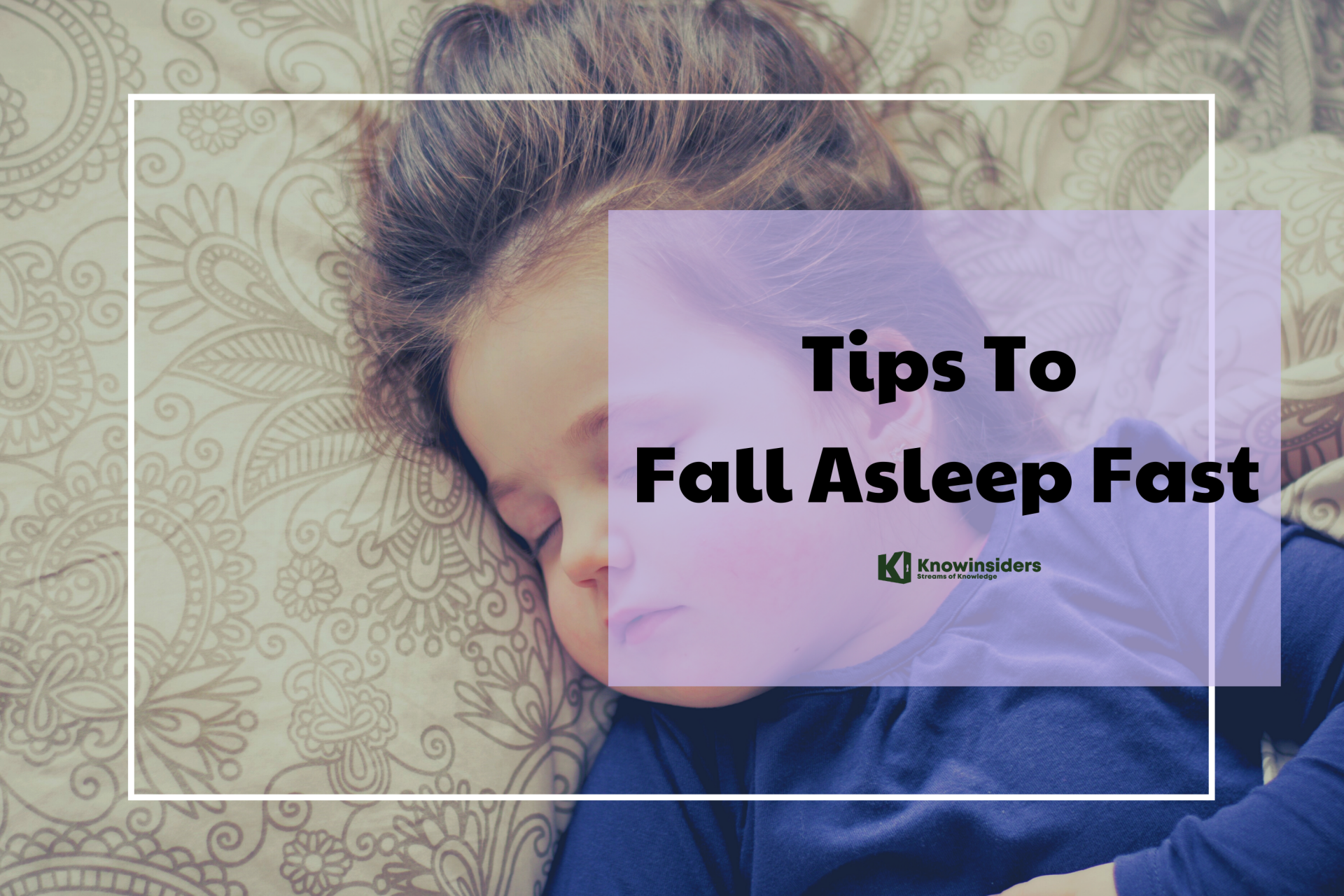 Tips to Fall Asleep Fast in 60s or 120s Tips to Fall Asleep Fast in 60s or 120s Do you find it hard to get to sleep at night? This article is just right for you. Read on to know how to fall ... |
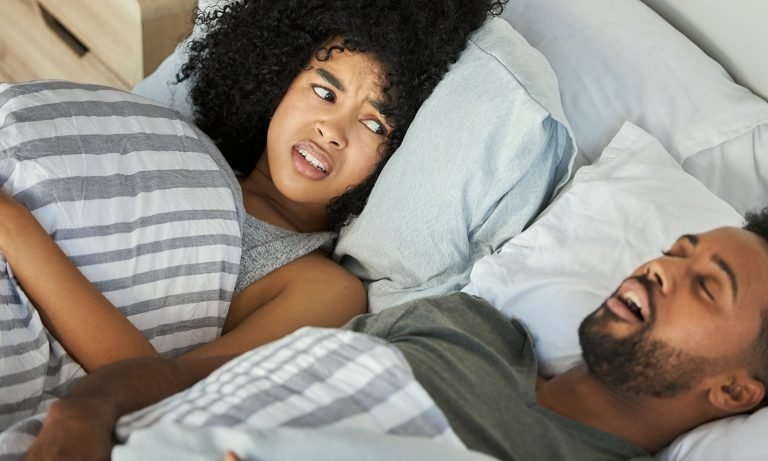 How To Stop Snoring: Home Treatment and Doctor's Advice How To Stop Snoring: Home Treatment and Doctor's Advice Snoring can be irritating to loved ones trying to catch some ZZZs. But it can also be a sign of a potentially serious condition. Keep ... |
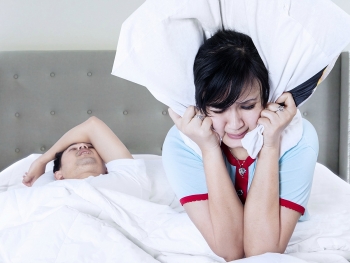 What To Do If You've Got Sleeping Problems Due To Noise? What To Do If You've Got Sleeping Problems Due To Noise? Loud surroundings can be a major disruption to sleep quality and quantity. Sounds can prevent you from drifting off right away or could pull you ... |























